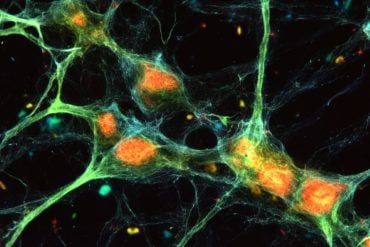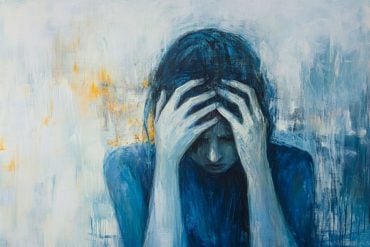Summary: Opioid use disorder is 30% less common in those who used psilocybin compared to those who have never been exposed to the psychedelic. Researchers say psilocybin may protect against opioid addiction by affecting the transmission of dopamine and serotonin.
Source: Nature
Adults who have at some time in their life used psilocybin—a psychedelic substance produced by some types of mushrooms—are 30% less likely to have opioid use disorder, according to a nationally representative survey of US adults reported in Scientific Reports.
Grant Jones and colleagues investigated the incidence of opioid use disorder and the prevalence of psychedelic use among 214,505 adults using survey data collected between 2015 and 2019.
Participants reported whether they had abused or experienced dependence on heroin or prescription pain relievers in the past year and reported whether they had ever taken the psychedelic drugs psilocybin, peyote, mescaline or LSD. 2,183 (1.0%) participants met the criteria for opioid use disorder in the past year. 22,276 (10.4%) participants reported having used psilocybin and 10,284 (46%) of those also reported using heroin or prescription pain relievers recreationally at least once in their lives.
The researchers found that opioid use disorder was 30% less likely among those had used psilocybin, compared to those who had never used it.
Those who used psilocybin were also between 17% and 34% less likely to have experienced seven of the 11 symptoms of opioid dependence and abuse in the past year, compared to those who had never used it. This suggests that psilocybin use could have a protective effect against a range of opioid use disorder symptoms.
The researchers did not identify significant associations between peyote, mescaline or LSD use and the likelihood of opioid use disorder.

The authors speculate that psilocybin may protect against opioid use disorder by affecting the transmission of serotonin and dopamine—neurotransmitters that previous research has found are associated with addiction.
Additionally, they suggest that the mystical or spiritual experiences that psilocybin induces could decrease the likelihood of users developing opioid use disorder as previous studies have observed associations between spiritual experiences and beliefs and positive substance abuse recovery outcomes.
Further research, including long-term observational studies and clinical trials, is needed to investigate the relationship between psilocybin and opioid use, they add.
About this addiction and psychedelics research news
Author: Press Office
Source: Nature
Contact: Press Office – Nature
Image: The image is in the public domain
Original Research: Open access.
“Associations between classic psychedelics and opioid use disorder in a nationally-representative U.S. adult sample” by Grant Jones et al. Scientific Reports
Abstract
Associations between classic psychedelics and opioid use disorder in a nationally-representative U.S. adult sample
Opioid use disorder (OUD) is a major source of morbidity and mortality in the U.S. and there is a pressing need to identify additional treatments for the disorder. Classic psychedelics (psilocybin, peyote, mescaline, LSD) have been linked to the alleviation of various substance use disorders and may hold promise as potential treatments for OUD.
The aim of this study was to assess whether the aforementioned classic psychedelic substances conferred lowered odds of OUD. Furthermore, this study aimed to replicate and extend findings from Pisano et al. (2017) who found classic psychedelic use to be linked to lowered odds of OUD in a nationally representative sample.
We used recent data from the National Survey on Drug Use and Health (2015–2019) (N = 214,505) and multivariable logistic regression to test whether lifetime use (yes/no) of classic psychedelics was associated with lowered odds of OUD. Lifetime psilocybin use was associated with lowered odds of OUD (aOR: 0.70; 95% CI [0.60, 0.83]).
No other substances, including other classic psychedelics, were associated with lowered odds of OUD. Additionally, sensitivity analyses revealed psilocybin use to be associated with lowered odds of seven of the 11 DSM-IV criteria for OUD (aOR range: 0.66–0.83).
Future clinical trials and longitudinal studies are needed to determine whether these associations are causal.






